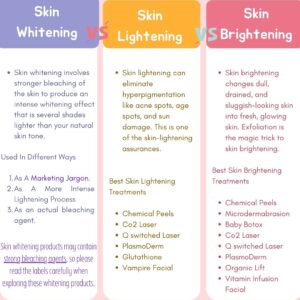
Table of Contents
ToggleCost Of Laser Pigmentation Treatment In Bangalore
What Is Laser Pigmentation Treatment?
Laser pigmentation treatment is a cosmetic procedure that uses lasers to improve the appearance of the skin by reducing the appearance of hyperpigmentation, which is a condition that causes areas of the skin to become darker than the surrounding skin.
The procedure can be used to treat a variety of conditions, including age spots, sun spots, and melasma. During the treatment, a laser is used to target the pigment in the skin, breaking it up into smaller particles that are then absorbed by the body or eliminated through the skin’s natural healing process. A dermatologist or a plastic surgeon usually performs laser pigmentation treatment, and the treatment results can vary depending on the severity of the hyperpigmentation and the individual’s skin type.
Benefits Of Laser Pigmentation Treatment
There are several benefits to laser pigmentation treatment, including:
Improved appearance: Laser pigmentation treatment can help reduce the appearance of hyperpigmentation, making the skin look more even and smooth.
Quick treatment: The procedure is usually quick, with most treatments taking less than an hour to complete.
Minimal downtime: Laser pigmentation treatment usually has minimal downtime, with most people able to return to their normal activities immediately after the procedure.
Non-invasive: Laser pigmentation treatment is a non-invasive procedure, which means it does not require any incisions or injections.
Safe: Laser pigmentation treatment is generally considered safe when performed by a trained and experienced medical professional.
Long-lasting results: The results of laser pigmentation treatment can last for several months or longer, depending on the individual’s skin type and the severity of the hyperpigmentation.
Can be combined with other treatments: Laser pigmentation treatment can be combined with other cosmetic treatments, such as microdermabrasion or chemical peels, to further improve the appearance of the skin.
Understanding Pigmentation
Skin pigmentation disorders are common, and affect skin color. Your complexion depends on a pigment, called melanin, made of special cells that make melanin. The unhealthy/damaged cells affect melanin production. While certain pigmentation issues affect only patches of skin, others affect your full body. Your skin gets darker if your body produces excess melanin.
Types of Skin Pigmentation
Here are the most common types of skin pigmentation:
Freckles
Freckles, or ephelides, are the most common type of pigmentation, which occurs after consistent sun exposure, mainly if you have a fair complexion.
Melasma
Melasma, or chloasma, is a deeper skin pigmentation, which shows up on your face as bigger brown patches with an unclear border.
Solar Lentigines
Solar lentigines, also called sun spots or liver spots, are pigmented spots with clearly defined edges, which may occur on any body part.
Post-Inflammatory Hyperpigmentation
It is a response to skin injury and can be the outcome of acne, friction, and aesthetic treatments, such as laser and chemical peels.
Causes of Pigmentation
Here are the key causes of pigmentation:
- Consistent sun exposure
- Pregnancy
- Allergies
- Inflammatory diseases
- Physical or chemical injuries
- Diabetes
- Obesity
- Hormonal imbalance
- Aging
Impact on Self-esteem
Hyperpigmentation, in the form of melasma, leaves an impact on your self-esteem and lifestyle. They may lack the confidence to step outside their homes and talk to people. After getting the right aesthetic treatment, they got rid of melasma and started feeling much more confident than before. Pigmentation tends to have socio-psychological effects on the self-esteem of patients.
The Science Behind Laser Treatment
Laser light energy increases the mitochondria, the cell powerhouse, to create more ATP so the cell gets more active. The light emitted from lasers can cause changes on a molecular or chemical level.
How Laser Targets Pigmentation?
The laser targets the damaged tissues, removes dead skin cells, and boosts collagen production in your skin. Collagen keeps your skin healthy and supple. With the increase in melanin and decrease in collagen, brown spots appear on your skin. Laser treatment removes pigmentation and encourages the growth of new skin in its place.
Laser Treatment Benefits Over Traditional Treatments for Pigmentation
Here are the key benefits you get with laser treatment for pigmentation:
- Apply concentrated light on hyperpigmentation
- Break down the melanin
- Flake off pigmented skin
- Even out complexion
- Rejuvenate the overall skin
- Shrink large pores on your skin
- Reduce the appearance of wrinkles and fine lines
- 1 or 2 sessions are enough to get the desired results
- Heal 4 to 21 days after the treatment
Laser Treatment Vs. Chemical Peels for Skin Pigmentation
Both laser and chemical peel are effective treatments to remove skin pigmentation. The laser emits light beans to penetrate your skin and target either pigment or hemoglobin in your skin. The target pigment removes darl spots and age spots.
Chemical peels involve using solutions of different strengths to remove your skin’s topmost layer. Peels are of usually three types – superficial, medium, and deep. Most chemical peels work at a medium level or superficially. Lasers are replacing super-deep chemical peels these days as they are a more precise pigmentation treatment method.
Cost Of Laser Pigmentation Treatment in Bangalore
The cost of laser pigmentation treatment in Bangalore can vary depending on various factors such as the clinic, the experience of the practitioner, the type of laser used, and the area of treatment.
On average, the cost of laser pigmentation treatment in Bangalore ranges from Rs. 6,000 to Rs. 8,500 per session. However, multiple sessions may be required for optimal results, and the total cost can add up accordingly.
We also provide free consultation, hair/skin assessment, and Image Consulting.
Can laser remove Pigmentation Permanently?
It is not possible to completely remove pigmentation permanently with lasers. However, laser pigmentation treatment can significantly reduce the appearance of hyperpigmentation and may improve the overall tone and texture of the skin. In some cases, the results of laser pigmentation treatment can last for several months or longer.
To maintain the results of treatment, it is important to protect the skin from further sun damage by wearing sunscreen and protective clothing when spending time outdoors and by avoiding prolonged sun exposure.

Some of our pigmentation removal results
Talk To Our Pigmentation Expert Today!
No Obligations! Just jump on a quick call with our pigmentation expert and know what kind of treatment will suit you the best.
Either way you will get some actionable tips to reach your skin goals faster.
Why Clinic Next Face?

Experienced in-house team of certified cosmetic doctors and a huge network of dermatologists, surgeons, nutritionists, PMU Artists, cosmetologists, and other medical professionals.

Free Hair & Skin Assessment by the experts in the industry.

Advanced FDA approved equipments along with well trained doctors.

Served 1,00,000 happy customers and counting

India's First Smart-Ageing Clinic which takes holistic approach to make reverse all signs of physical ageing.

We commit to provide customized treatments and setting right expectations before treatments.
Frequently Asked Questions on Laser Skin Pigmentation Treatment
The length of time it takes for pigmentation to fade after laser treatment can vary depending on several factors, including the severity of the hyperpigmentation, the individual’s skin type, and the specific type of laser used. In general, the results of laser pigmentation treatment are not immediately visible, as it can take several weeks or longer for the treated areas to heal and the pigment to fade.
The skin may appear red and swollen immediately after the treatment, but these side effects usually resolve within a few days. Most people notice a significant improvement in the appearance of their skin within a few weeks to a few months after treatment.
Laser pigmentation treatment works by using a laser to target the pigment in the skin. The laser emits a beam of light that is absorbed by the pigment in the skin, causing it to break up into smaller particles. These particles are then absorbed by the body or eliminated through the skin’s natural healing process. The laser used for pigmentation treatment is usually selected based on the specific type of pigment being targeted and the depth of the pigment in the skin.
Different types of lasers are better suited to treat different types of pigment, so it is important to choose a laser that is appropriate for the individual’s specific skin concerns. The laser is typically delivered to the skin in a series of short pulses, which helps to minimize discomfort and minimize the risk of side effects.
It is generally not recommended to wear makeup immediately after laser pigmentation treatment. The skin is usually sensitive and red following the procedure, and wearing makeup can irritate the skin and potentially increase the risk of infection. Your doctor will provide you with specific aftercare instructions, which may include avoiding makeup for a certain period of time after the procedure. In general, it is best to wait until the skin has fully healed before wearing makeup again, as this will help ensure the best possible results and minimize the risk of complications.



